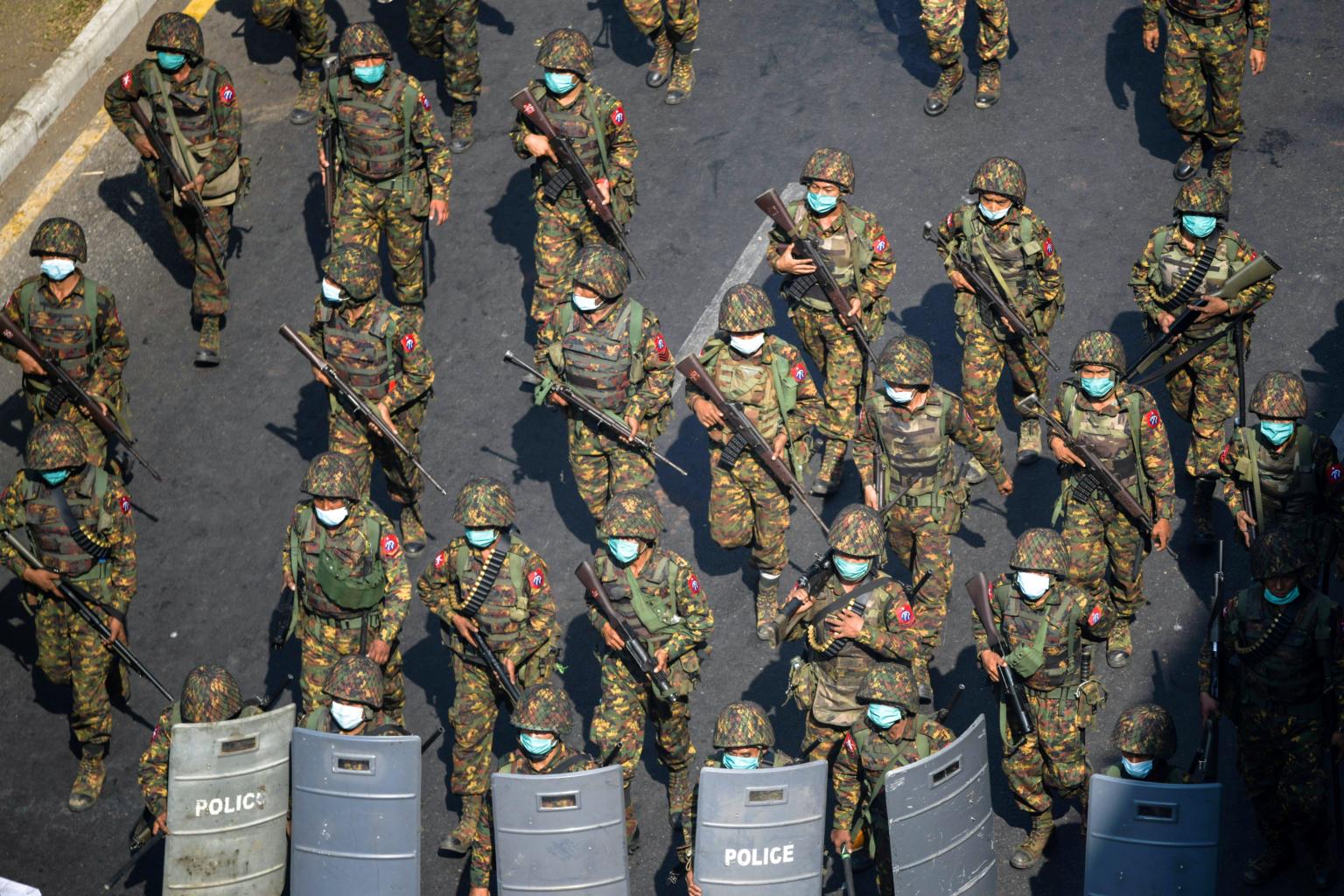Myanmar junta firm applies to end Kirin brewery deal
Sign up now: Get insights on Asia's fast-moving developments

Myanmar's economy has tanked since the military took power in February.
PHOTO: REUTERS
Follow topic:
YANGON (AFP) - A Myanmar military conglomerate has applied to dissolve the brewery it runs with Japanese beer giant Kirin, state media said, as its once-popular drink reels under a coup-inspired boycott.
Myanmar's economy has tanked since the military took power in February, sparking widespread protests, deadly unrest and international sanctions.
Lawyers for Myanma Economic Holdings Limited (MEHL) "applied to dissolve Myanmar Brewery Limited on Nov 19", state-backed newspaper Myanma Alin reported, without giving details on why the application had been made.
Kirin has a majority stake in Myanmar Brewery Limited in partnership with MEHL, a secretive military-controlled behemoth with tentacles in industries as diverse as beer, tobacco, transportation, textiles, tourism and banking.
Myanmar Brewery, whose beverages include its flagship and ubiquitous Myanmar Beer brand, boasted a market share of nearly 80 percent, according to figures published by Kirin in 2018.
A court hearing for the application has been set for Dec 10, the Myanma Alin report on Monday said, but the news appeared to catch Kirin unawares.
"We are aware of the official announcement in the government-run paper, but we have not been directly informed. We're currently checking the details," a Kirin spokeswoman said.
Kirin's Myanmar business generated 32.6 billion yen (S$387 million) in revenue in fiscal year 2019-2020 but it has been under scrutiny for some time over its relations with military-owned breweries.
Days after the coup Kirin said it would cut business ties with the military, accusing the junta of acting "in contradiction" to its principles on human rights.
It still plans to dissolve partnerships with companies linked to the military, but its stance on continuing local operations has not changed, the spokeswoman added.
Investors piled into Myanmar after the military relaxed its iron grip in 2011, paving the way for democratic reforms and economic liberalisation in the country of more than 50 million people.
They poured money into telecommunications, infrastructure, manufacturing and construction projects.
The coup upended the democratic interlude and earlier this year the World Bank forecast the economy will contract by up to 18 per cent.

